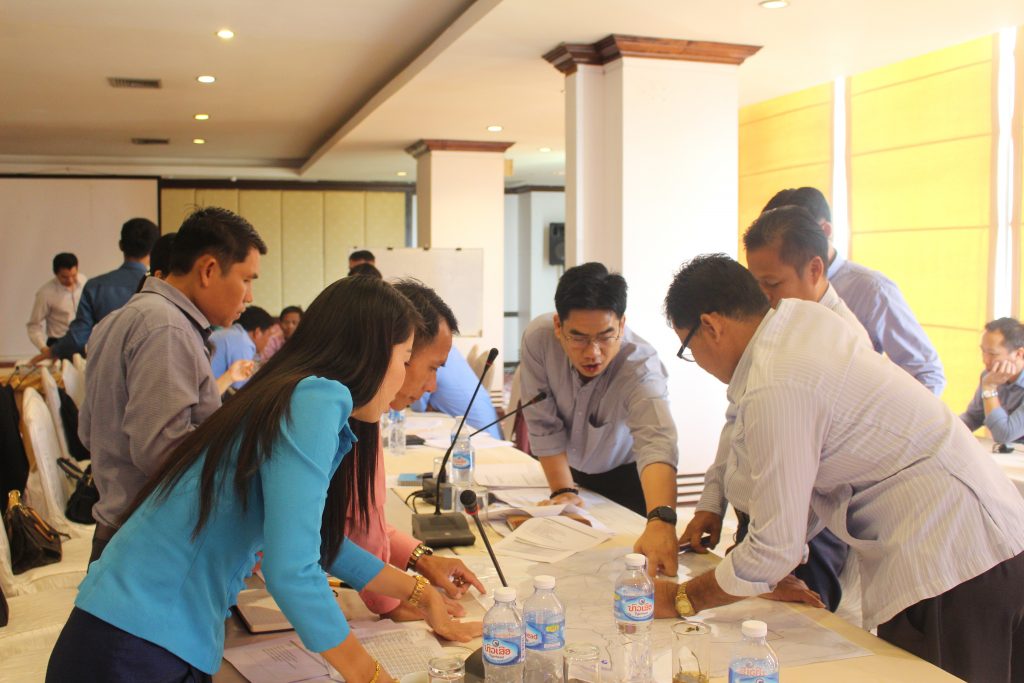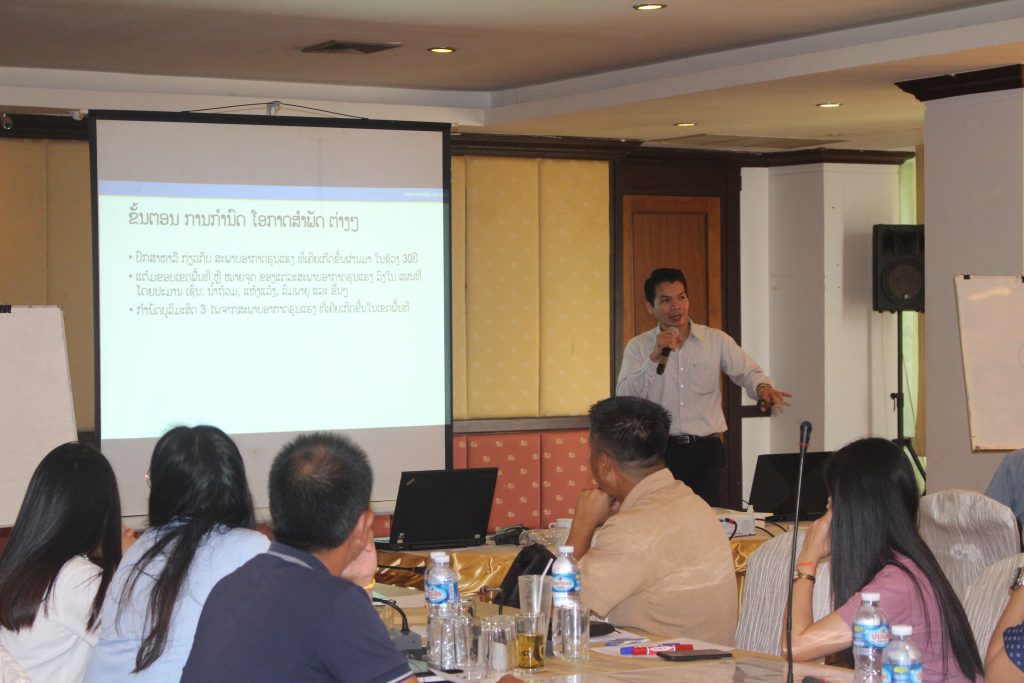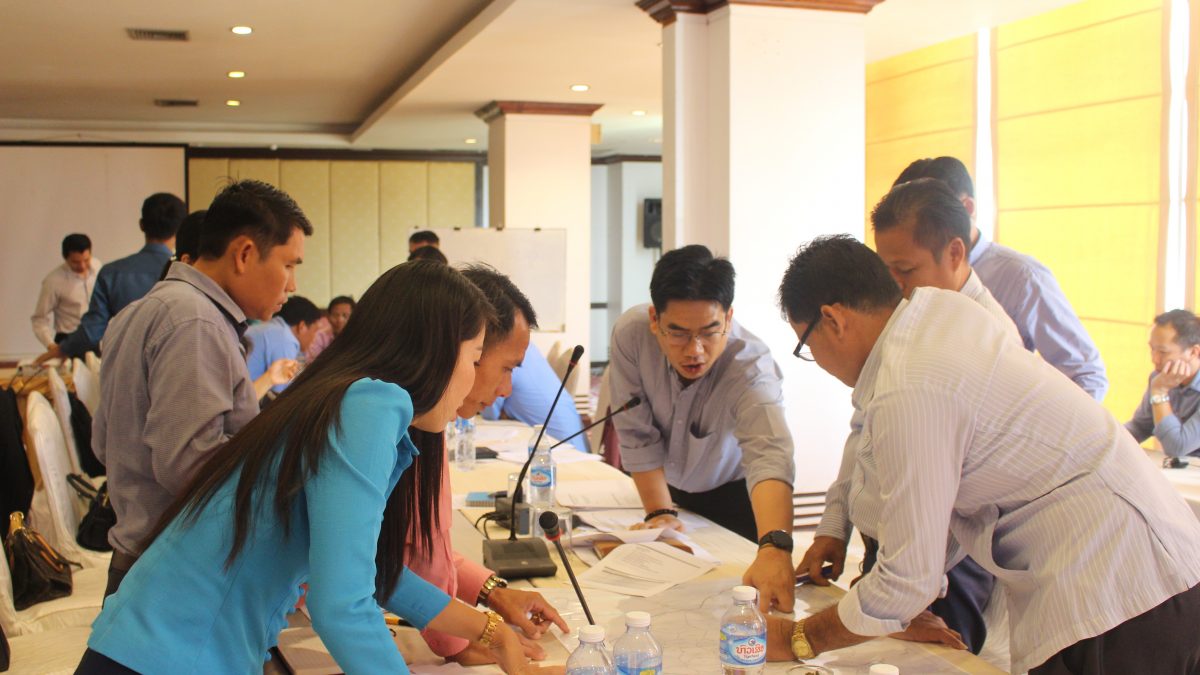
Youth involved in building the Local Climate Action Plan in Brazil
September 9, 2020
Cities of Balikpapan and Bogor review Urban-LEDS Project I
September 14, 2020ICLEI-SEAS assisted Lao cities in launching the fourth installment of the capacity building training workshop on Greenhouse Gases emission inventory (GHGi) data collection tools and methodologies, Climate Risk and Vulnerability assessment (CRVA), and consultation workshop on Low Emission Development Strategies (LEDS) on 8-10, September in Pakse City.

Pakse City, Laos – ICLEI – Local Governments for Sustainability Southeast Asia Secretariat (ICLEI SEAS), in partnership with UN-Habitat, organized a capacity building training workshop and a review of local government partners’ low emission development strategies (LEDS), last 8-10 September 2020 at the Arawan Riverside Hotel, Pakse City, Champasak Province. Government stakeholders including the Ministry of Natural Resources and Environment, Provincial Offices of Natural Resources and Environment, District Offices of Natural Resources and Environment and Local Governments attended the workshop.
The three-day program involved lectures and hands-on activities to train city representatives and technical staff on conducting data collection activities for the city’s greenhouse gas emissions inventory (GHGi) and identifying climate risks. The activity also helped the cities formulate their LEDS action strategies and mainstream them in the local development plan.
On the first day, GHGi consultant Mone Nouansyvong presented the Cities’ GHG emission sources by sectors and subsectors, and their corresponding GHG emission factors. He also demonstrated how to use the tool City Inventory Reporting System and Information System (CIRIS). CIRIS is a GHGi tool used by local governments that are part of the Urban-LEDS II project. The workshop also introduced the participants to the CDP-ICLEI Unified Reporting System, which is being used by the two model cities of Pakse and Kaysone Phomvihane.
On the second day, Climate Risk and Vulnerability Assessment (CRVA) consultant Vathanamixay Chamsomphou presented the methods and approaches to identifying and reporting climate risks and vulnerabilities in the cities, i.e. IPCC, AR4’s (2007), conceptual framework of vulnerability to climate change, which is a combination of exposure, sensitivity and adaptive capacity.
The workshop concluded with a deep-dive session on potential demonstration projects under the Urban-LEDS II project. The focus groups identified low-emission strategies to form part of the LEDS action plans, which will then be streamlined in their local development plans. Identified potential pilot projects include the installation of solar panels in government office buildings, replacing inefficient lighting with LED options in buildings and streetlights, introducing small-scale electric vehicles, supporting waste-recycle banks, and increasing green space through reforestation.
Identified adaptation strategies include installing early warning systems, improving drainage ditches, constructing emergency shelters furnished with adequate supplies and necessities, and levees for flood protection, and creating awareness on disaster awareness at the village level.
Mr. Champa Xayyasak, Deputy Director of City Cabinet Office of Pakse suggested that it would be beneficial to the participants if the translation was provided on the CIRIS software in order to facilitate the trainees on the exercise of CIRIS software. In addition, the length of training course provided is quite limited to allow the participants to have in-depth learning particularly on the conduct of GHG inventory in each sector.
Participants also raised their experience on constraints to data collection across the key sectors. The lack of an information management system to handle activity-level and climate-related data sets also surfaced as a challenge among the cities. These considerations shall form part of a business case for a third leg of the Urban-LEDS project.

More Stories
- ICLEI SEAS assists Lao cities in GHG inventories and climate risk and vulnerability assessments
- Urban LEDS II conducts GHG emissions inventory and climate risk vulnerability assessment for Lao cities
- Enhancing the multi-level governance on LEDs in Lao PDR
- Urban-LEDS II conducts GHG emissions inventory and climate risk vulnerability assessment for Lao cities

